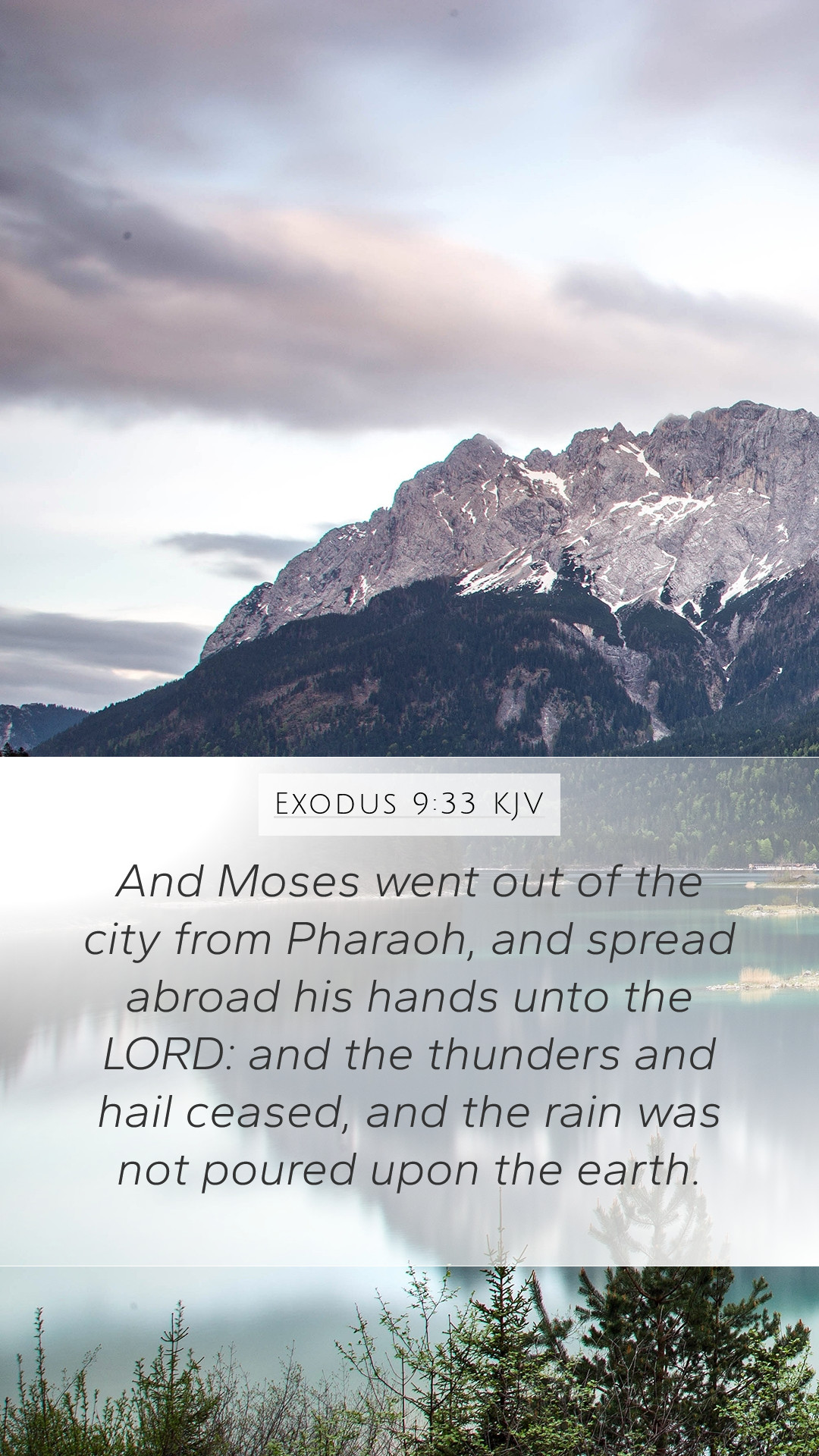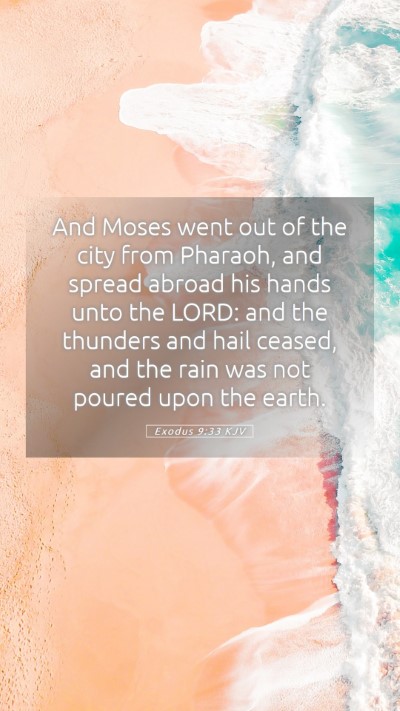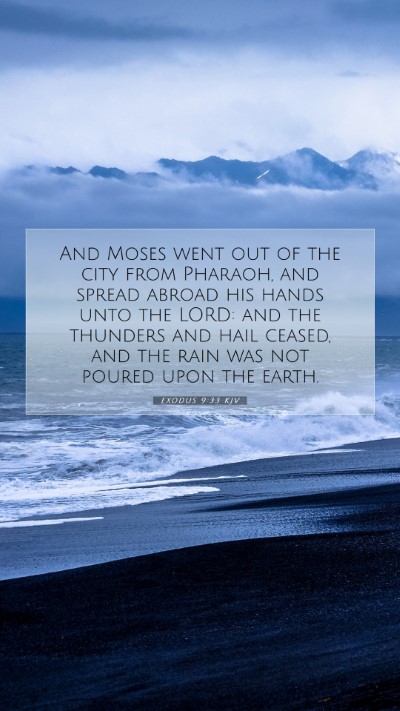Exodus 9:33 - Summary of Bible Verse Meaning
The verse Exodus 9:33 captures a pivotal moment during the plagues of Egypt, reflecting on Moses’ response to God’s commands and the ongoing struggle between divine will and human defiance, particularly illustrated through Pharaoh’s hardened heart. This analysis combines insights from respected public domain commentaries including Matthew Henry, Albert Barnes, and Adam Clarke to provide a thorough understanding of this scripture.
Bible Verse Context
Exodus 9:33 states: “And Moses went out of the city from Pharaoh, and spread abroad his hands unto the Lord: and the thunders and hail ceased, and the rain was not poured upon the earth.” This event follows a series of devastating plagues sent by God to persuade Pharaoh to release the Israelites from slavery in Egypt. Each plague serves as both a judgment against Egypt's gods and an affirmation of God's sovereignty.
Understanding the Key Elements
- Moses’ Intercession: Moses’ act of spreading his hands before the Lord signifies a posture of intercession and reliance on divine mercy. His actions reveal the importance of prayer and supplication in seeking God’s intervention.
- The Cessation of Plagues: The halting of the hail and thunder demonstrates God’s might over nature and His ability to control the elements, confirming His authority and power to both Moses and Pharaoh.
- Pharaoh's Response: This verse also underscores Pharaoh’s fluctuating responses to God, showcasing a theme of rebellion and hard-heartedness that leads to continued suffering in Egypt.
Commentary Insights
Matthew Henry's Commentary
Matthew Henry points out that Moses’ act of turning to God emphasizes the necessity of acknowledging divine authority in adverse situations. Henry indicates that even amid the calamities intended to persuade Pharaoh, it is human inclination to resist God's will that prolongs the suffering.
Albert Barnes' Commentary
Albert Barnes notes the symbolic nature of Moses spreading out his hands, which reflects his role as an intercessor and mediator. Barnes explains that this action not only signifies Moses' trust in God's power but also reflects an essential aspect of biblical leadership: the ability to stand between God and the people to seek mercy.
Adam Clarke's Commentary
Adam Clarke elaborates on the miraculous cessation of the plagues, illustrating God’s willingness to respond to genuine requests for mercy. Clarke highlights that this moment exemplifies the consequences of pride and disobedience, carrying a lesson for readers on the significance of humility in seeking God’s favor.
Lessons and Applications
This verse presents various lessons and applications relevant to modern believers:
- The Power of Prayer: Just as Moses prayed earnestly for relief from the plagues, believers today are encouraged to bring their concerns to God in prayer and trust in His power to intervene in their circumstances.
- Divine Sovereignty: The plagues serve as reminders of God’s ultimate authority over all creation, urging individuals to recognize His power in their lives.
- The Importance of Humility: Pharaoh’s defiance illustrates the dangers of hardening one’s heart against divine instruction. The text calls for humility and a willingness to yield to God’s will.
Related Bible Cross References
- Exodus 9:22-26: The account of the hailstorm itself, where God's power is vividly displayed.
- Exodus 8:15: Shows Pharaoh hardening his heart after the plagues, providing context to the persistent cycle of defiance.
- Numbers 21:7: Discusses the power of intercession as the Israelites turn to Moses during times of judgment.
Conclusion
Exodus 9:33 invites readers to delve deeper into understanding the relationship between God and humanity, showcasing profound themes of power, intercession, and the consequences of human choices. Engaging with this scripture through comprehensive Bible verse commentary fosters greater insights and appreciating the complexities of faith and divine interaction.
For those seeking further Bible study insights, it is useful to employ tools such as online Bible study resources and guides, to gain a better grasp of difficult passages and their historical context.


